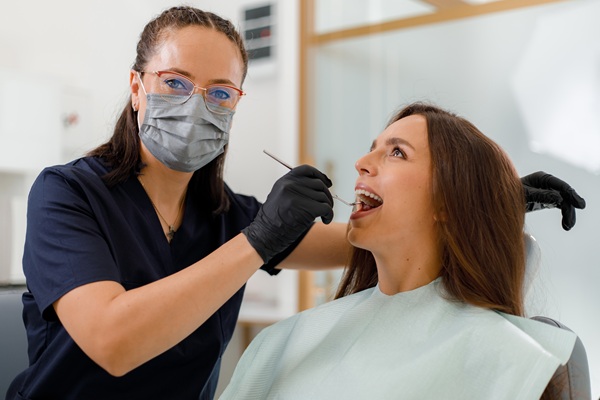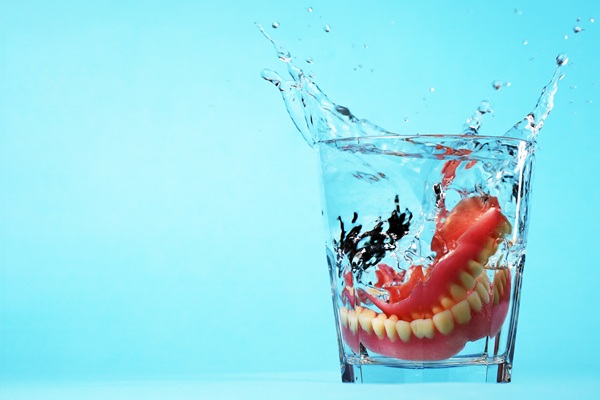Tips on How to Care for Your Smile After a Dental Cleaning

Routine dental cleanings help maintain the health of your teeth and gums by removing plaque and tartar buildup. However, practicing good oral hygiene at home is essential to prevent oral health issues between visits. Taking proper care of your teeth daily ensures a bright, healthy smile over time.
Tips to better care for teeth between dental cleanings
Brush properly twice a day
Brushing teeth at least twice daily helps keep them free of plaque and food particles. A soft-bristled toothbrush and fluoride toothpaste help clean teeth without causing damage to the enamel or gums. Each brushing session should last at least two minutes, covering all surfaces of the teeth, including the front, back, and chewing areas. Using gentle, circular motions helps remove plaque more effectively than brushing too hard.
Floss every day
Flossing is just as important as brushing because it removes food and plaque from areas a toothbrush cannot reach. Flossing once daily helps prevent cavities and reduces the risk of gum disease. Flossing technique is also important. Slide the floss gently between the teeth and curve it around each tooth instead of snapping it into place. If using traditional floss is difficult, floss picks or water flossers can be good alternatives.
Use mouthwash for extra protection
Mouthwash can help reach areas that brushing and flossing might miss. An antibacterial mouthwash reduces plaque buildup and helps prevent gum disease. A fluoride rinse strengthens enamel and protects against cavities. Rinsing for about 30 seconds after brushing and flossing can provide additional protection and keep the mouth feeling fresh.
Drink plenty of water
Drinking water throughout the day helps wash away food particles and bacteria that can cause plaque buildup. Water also keeps the mouth hydrated, reducing the risk of dry mouth, which can lead to tooth decay. Choosing water over sugary or acidic drinks helps protect enamel and maintain oral health between dental cleanings.
Eat a tooth-friendly diet
A balanced diet plays a key role in maintaining strong teeth and gums. Foods rich in calcium, such as dairy products and leafy greens, help strengthen enamel. Crunchy fruits and vegetables, like apples and carrots, help clean teeth naturally by removing plaque as they are chewed. Limiting sugary and starchy foods can reduce the risk of cavities and protect teeth from decay.
Avoid harmful habits
Certain habits can damage teeth over time. Chewing on ice, biting fingernails, or using teeth to open packages can cause chips and cracks. Smoking and using other tobacco products can increase the risk of gum disease and stains on teeth. Avoiding these habits can help maintain a healthy smile between dental cleanings.
Do not skip regular dental visits
Even with good oral hygiene, professional cleanings are necessary to remove plaque and tartar buildup that brushing and flossing cannot eliminate. Dentists can also detect early signs of cavities, gum disease, and other dental issues. Scheduling a dental cleaning every six months ensures teeth stay healthy and problems are caught early.
Keeping a healthy smile between dental cleanings
Good oral hygiene does not stop after a dental cleaning. Brushing, flossing, and using mouthwash regularly help maintain healthy teeth and gums. Making smart choices about diet and habits can also prevent dental problems and keep a smile bright until the next cleaning.
Request an appointment here: https://www.foothillfamilydentists.com or call Foothill Family Dentistry at (949) 506-2115 for an appointment in our Foothill Ranch office.
Check out what others are saying about our dental services on Yelp: Dental Cleaning and Examinations in Foothill Ranch, CA.
Recent Posts
Whether you are a person who loves to care for your teeth and gums or someone who has been neglectful due to various circumstances, routine teeth cleaning is essential to your oral health. The following article will review everything you need about professional teeth cleanings, such as why they are necessary, what to expect, and…
Although a dental cleaning appointment sounds specific to having the teeth cleaned, there are other services included in these appointments, all of which help ensure good oral health. Good oral health is essential because it encourages the rest of the body to also be in good health. To understand the entire scope of dental cleaning…
Dentists typically ask a series of questions during a dental exam to gather more information about the patient’s oral health, previous dental history, and goals. This helps the dentist provide sound advice and allows them, along with the patient, to put together a long-term treatment and prevention plan.The questions you are asked during a dental…
Everyone wants strong and healthy teeth, but not everybody wants to book dental appointments regularly. Studies have shown that aside from excellent oral hygiene, regular visits to the dentist for dental cleanings are vital for healthy and beautiful teeth. In this article, we will focus on five reasons to go for regular dental visits. Mouth…


